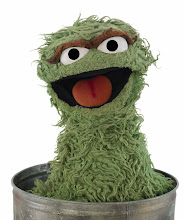I was pondering the section of my thesis that I have been battering my head against for what feels like the past century when a colleague enquired as to its progress. I heard myself say the immortal words: 'It's all there. I just need it to click together and it'll be fine.' Alongside, 'it'll practically write itself,' and 'I work organically; I don't like to confine myself to a plan,' these are perhaps the most pernicious words that can be uttered by a writer. They all share a common desire to abdicate our own responsibility to actually produce some writing. All of them possess a deus ex machina-like appeal to an unspoken, ineffable god of writing to come down and provide us with inspiration. The problem, of course, is that the longer we spend relying on such divine intervention, the less we are actually doing ourselves, and the more stressed, rushed etc we become.
So, what can we do? Should we attempt to inoculate ourselves against such impotence by just submitting to the drudgery of composition? Well, yes, but there is a deeper issue here. As writers, do we really want to take full and complete responsibility for our output? Is it not somehow safer to abrogate our role in composition. Although it means that we can never truly take all the credit for what we produce, it equally insulates us against blaming ourselves for any lack of motivation or inadequacy. In this sense, the religious analogy employed above is particularly pertinent. By attempting to externalise the actual process of composition, we turn ourselves into mere mediums, channeling rather than creating. As the committed atheist that I am, perhaps it is this perceived shackling of my own creativity that irks me the most.
Tuesday 10 November 2009
Subscribe to:
Posts (Atom)
